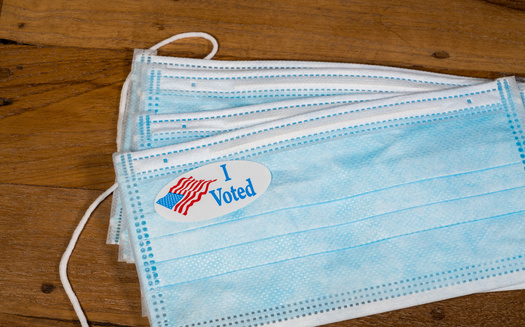
I Voted sticker on protective face mask for in person voting in the presidential election in the USA during coronavirus pandemic

Share
Minnesota’s primary election is Tuesday.
This year’s vote is unlike any other in recent history, and state officials hope they’ve made enough accommodations for anyone worried about participating during a pandemic.
Primary races for U.S. Senate and House seats, and legislative districts, are on the ballot. And Secretary of State Steve Simon says not surprisingly, there’s been a surge in demand for absentee ballots.
Because of the health crisis, voters now have until Thursday, Aug. 13, to ensure their ballots been delivered by mail.
As for in-person voting, Simon says safeguards have been added.
“We’re going to have PPE and supplies there,” he states. “We’re going to have high grade, almost surgical grade, masks for all the election judges and poll workers. We’ll have more disposable-type masks for voters who go in without a mask.”
Minnesota has a mask mandate for indoor public settings, and Simon says plans include how to deal with voters who refuse to wear one — such as asking them to vote curbside instead.
And if voters are worried their absentee ballot might not be delivered by mail by Thursday, they can drop it off at the address on the envelope.
As of last week, the state says there had been roughly 600,000 requests for absentee ballots, a sharp increase over elections in 2016 and 2018.
Simon warns voters and the news media that election results will be slower to come by this year, because of all the temporary changes brought on by the pandemic.
The Legislature passed a bill that allows for more time for counting votes in 2020.
“It was something that the Legislature put in place wisely, to make sure we could accommodate the different kind of voting this year, a lot people voting from mail,” Simon states.
Some counties have had to work harder to recruit volunteers for polling locations, as a number of older volunteers opted to sit this year out due to COVID concerns.
The state says most locations should be in good shape for Tuesday, but there might be bigger staffing gaps for the general election in November.
Support for this reporting was provided by the Carnegie Corporation of New York.

